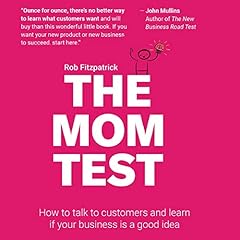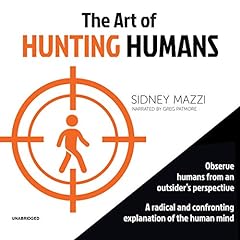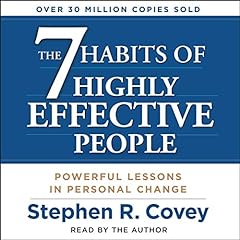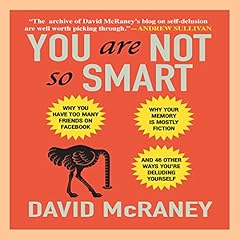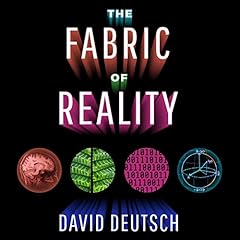
Mindwise
Why We Misunderstand What Others Think, Believe, Feel, and Want
Failed to add items
Add to basket failed.
Add to wishlist failed.
Remove from wishlist failed.
Adding to library failed
Follow podcast failed
Unfollow podcast failed
Buy Now for £18.99
No valid payment method on file.
We are sorry. We are not allowed to sell this product with the selected payment method
-
Narrated by:
-
Nicholas Epley
-
By:
-
Nicholas Epley
About this listen
You are a mind reader, born with an extraordinary ability to understand what others think, feel, believe, want, and know. It's a sixth sense you use every day, in every personal and professional relationship you have. At its best, this ability allows you to achieve the most important goal in almost any life: connecting, deeply and intimately and honestly, to other human beings. At its worst, it is a source of misunderstanding and unnecessary conflict, leading to damaged relationships and broken dreams.
How good are you at knowing the minds of others? How well can you guess what others think of you, know who really likes you, or tell when someone is lying? How well do you really understand the minds of those closest to you, from your spouse to your kids to your best friends? Do you really know what your coworkers, employees, competitors, or clients want?
In this illuminating exploration of one of the great mysteries of the human mind, University of Chicago psychologist Nicholas Epley introduces us to what scientists have learned about our ability to understand the most complicated puzzle on the planet - other people - and the surprising mistakes we so routinely make. Why are we sometimes blind to the minds of others, treating them like objects or animals? Why do we sometimes talk to our cars, or the stars, as if there is a mind that can hear us? Why do we so routinely believe that others think, feel, and want what we do when, in fact, they do not? And why do we believe we understand our spouses, family, and friends so much better than we actually do? Mindwise will not turn other people into open books, but it will give you the wisdom to revolutionize how you think about them - and yourself.
©2014 Nicholas Epley (P)2013 Brilliance Audio, all rights reserved.What listeners say about Mindwise
Average customer ratingsReviews - Please select the tabs below to change the source of reviews.
-
Overall5 out of 5 stars
-
Performance5 out of 5 stars
-
Story5 out of 5 stars
- Zenoperegrinus
- 13-03-20
Illuminating and incredibly listenable
"Only by recognising the limits of our brain's greatest sense, will we have the humility to understand others as they actually are instead of as we imagine them to be." Nicholas Epley, Mindwise.
Epley's humor shines throughout the book. His experiments provide a scientific robustness to his theories. I was surprised to learn that perspective taking is one of the worst ways to uncover what someone is thinking but learned a new way to approach understanding others.
Something went wrong. Please try again in a few minutes.
You voted on this review!
You reported this review!
-
Overall5 out of 5 stars
-
Performance5 out of 5 stars
-
Story5 out of 5 stars
- Kiri S C Sakelaropoulos
- 25-12-19
It changed my mind, maybe it will change yours.
Nicholas Epley carefully explains many of the difficulties we face in knowing what each of us know, offering many insights into the puzzle of getting on better with others. Who doesn't want to solve that puzzle?
Something went wrong. Please try again in a few minutes.
You voted on this review!
You reported this review!
-
Overall4 out of 5 stars
-
Performance3 out of 5 stars
-
Story5 out of 5 stars
- Judy Corstjens
- 21-04-14
Informative, thoughtful and fun.
This is just the sort of book I like - looking into our minds and perception and teasing out the reasons why our mental processes go wrong and mislead us. Why only four stars? Because sometimes I felt it made errors. For example, early on Mr Epley annihilates the idea that people can tell you why they have made a decision or behave in a certain way (the old problem of post-rationalisation). Then in subsequent chapters he uses survey data (without any apologies) to show, for example, how people think that their reasons for choosing or liking their job are different to those of their employees. So do we trust this self-reporting or not? More egregious, Epley tries to claim that it is our stereotyped images of growing old that lead us to grow old (and not physiological ageing). This is clearly wrong because I have aged in ways I didn’t even imagine or know about (don’t ask). His ‘evidence’ for this theory is that people with good images of growing old age better than those with more negative images of ageing. He doesn’t even bother to discuss the possibility that experience of old people and genetic propensity to age badly might be correlated. I could go on. Oh all right, just one more. He claims to have experimental evidence to show that people would be happier if they systematically talked to fellow travellers on commuter trains. Commuters don’t anticipate that chatting would make them happier, so they don’t try it, and miss out on this great opportunity for joyful social interaction. Maybe these were pre-audio-book commuters :)
I don’t want to discourage you from auditing this book because it is thought provoking and fun - just be aware that in some parts the data seems to be being fit to a theory rather than the other (correct) way round.
Narration: I had to set my ipod reader to ‘slow’ - instead of the normal speed. Nicholas reads his own book, but clearly wanted to whisk through as quickly as possible. Given the thoughtful nature of the content, this listener needed time to ingest the ideas, so slowing the flow was essential for me.
Something went wrong. Please try again in a few minutes.
You voted on this review!
You reported this review!
18 people found this helpful
-
Overall1 out of 5 stars
-
Performance3 out of 5 stars
-
Story1 out of 5 stars
- Stevie
- 17-04-14
Too much personal political bias
What would have made Mindwise better?
I wanted to read a non fiction science book. What I got was tedious and irrelevant American politics. I haven't finished yet I am tempted to just delete it.
Would you ever listen to anything by Nicholas Epley again?
No.
What three words best describe Nicholas Epley’s performance?
He can read aloud.
If you could play editor, what scene or scenes would you have cut from Mindwise?
All the tedious vomit-inducing sick-making times Epley displays his 'good', 'virtuous' and 'righteous' biases. Its kinda funny that Epley appears to infer that President Obama has empathy superpowers - hahahahaha!
Any additional comments?
Avoid this book if you have high blood pressure and are politically anywhere to the right of Pol Pot. Just avoid it if you cannot stand authors who want to ram their politics down your throat.
Something went wrong. Please try again in a few minutes.
You voted on this review!
You reported this review!
3 people found this helpful


